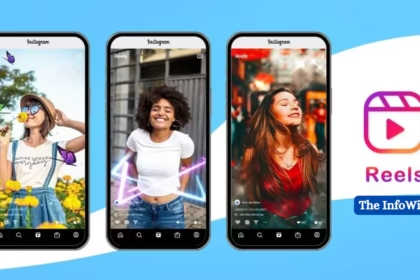OpenAI has just unveiled a prototype of its search engine called SearchGPT. The goal is to provide users with “fast and timely answers with clear and relevant sources.” Currently, in alpha testing with a small group of users, It is intended to be integrated into OpenAI’s popular chatbot, ChatGPT. This move could potentially increase pressure on Google in the search engine market. Users will be able to search more naturally and intuitively and ask follow-up questions, similar to a conversation.
What is SearchGPT?
SearchGPT is an AI-powered search engine prototype developed by OpenAI. It aims to compete with established search engines like Google by providing natural language query support and accepting follow-up queries. Unlike traditional keyword-based search engines, This AI-powered Search Engine leverages the context and intent behind user queries, creating a more interactive and conversational search experience. It prominently cites and links to publishers, ensuring transparency and clear attribution in search results. Although it’s currently in the prototype stage, holds promise for enhancing accessibility and efficiency in web searches.
Note
The searchGPT is powered by the GPT-4 family of models and will only be accessible to 10,000 test users at launch, OpenAI spokesperson Kayla Wood.
As trading closed on Thursday, alphabet shares fell to a new 52-week low of $167.32.
How does SearchGPT compare to Google?
SearchGPT is an alternative search engine prototype developed by OpenAI. Unlike traditional search engines like Google, which rely on pre-existing web pages and AI-generated responses, sGPT aims to provide bespoke answers to user queries. They differ significantly in their underlying technologies and user experience:
- Technology:
- Google uses a traditional keyword-based search approach. It indexes web pages, analyzes their content, and ranks them based on relevance to user queries.
- On the other hand, OpenAI’s search engine leverages natural language understanding (NLU) models (similar to Copilot) to interpret user queries contextually. It aims to provide more conversational and interactive search results.
- User Experience:
- Google displays a list of search results with clickable links. Users can click on relevant pages to find information.
- sGPT provides more detailed responses directly in the search results. It aims to answer questions comprehensively without requiring users to click through multiple links.
- Transparency:
- Google doesn’t always show the source of information prominently. Users may need to visit the page to verify credibility.
- sGPT emphasizes transparency by citing sources and linking to publishers, ensuring clear attribution.
- Current Stage:
- Google is a mature search engine with extensive infrastructure and vast data.
- It is still a prototype and may not cover all topics or provide as diverse results as Google.
While Google remains the go-to search engine for most users, SearchGPT offers an alternative approach that focuses on natural language understanding and transparency. Its success will depend on further development and user adoption.
What are the key features of searchGPT compared to Google?
SearchGPT is an alternative search engine prototype developed by OpenAI. Unlike traditional search engines like Google, which rely on pre-existing web pages and AI-generated responses, with aims to provide bespoke answers to user queries. Here’s how it differs:
- Real-Time Web Results: Integrates current online information, offering real-time web results. This means you get answers based on the most up-to-date data, rather than relying solely on outdated training data.
- Natural Responses: Instead of a simple list of links, generate formatted pages with legible content. For example, if you ask about the best time to see nudibranchs in Half Moon Bay, it provides images, tide pool locations, and recommended viewing times.
- Follow-Up Questions: It maintains context, allowing you to ask follow-up questions related to your initial query.
- Citations: It emphasizes proper citations, making fact-checking and research easier.
Keep in mind that SearchGPT is still a prototype, but you can sign up to try it out and experience its unique features firsthand.
How SearchGPT works?
Let me explain how It works:
- Similarity to ChatGPT:
- SearchGPT shares similarities with ChatGPT. When you enter a search query, it scours the internet for relevant information.
- Unlike traditional search engines, It provides conversational responses with real-time data pulled from the web.
- It aims to present results in a visually clean and appealing format.
- Conversational Follow-ups:
- While providing/fetching an answer, it includes a link to the source where the information was retrieved.
- You can respond with follow-up questions, allowing you to explore specific details without clicking multiple links or entering new prompts.
- Publisher Collaboration:
- To address concerns about harming publishers, the OpenAI Search engine includes proper attribution, linking, and citing of original sources.
- Publishers can manage how their webpages appear in SearchGPT, maintaining some control over their participation.
- OpenAI collaborates with publishers to build a mutually beneficial experience.
- Future Integration with ChatGPT:
- Although This SE is currently a prototype, OpenAI plans to integrate its best features directly into ChatGPT in the future.
SearchGPT combines AI-driven search capabilities with conversational responses, aiming to provide timely and accurate information from the web.
The Competitive Landscape
OpenAI’s search engine SearchGPT directly challenges Google’s longstanding dominance in the search market. It represents a significant challenge to Google’s search engine. As the dominant player in search, Google has been incorporating AI features into its search algorithms. However more advanced AI-driven search experience, potentially reshaping how users find and interact with information on the web.
Unlike Google’s AI Overviews (which summarize data from websites), This search Engine is built from the ground up with generative AI in mind. This approach could give OpenAI a distinct advantage if its Search Engine proves successful among early users and publishers. Moreover, Its entry into the search engine market could indeed pose a significant challenge to Google, offering an alternative AI-driven search experience with transparent attribution and publisher links.
Google’s Dominance over Search Engine
Google’s dominance in the search engine market is remarkable. As of July 2023, Google holds an 84% share of the global search engine market. Its closest competitor, Bing, lags far behind with a mere 9.19% share, while Yahoo occupies the third spot with a modest 2.72%. These numbers reflect a somewhat lopsided competitive landscape.

Additionally, it’s worth noting that Google’s global search engine market share was 91.88% as of June 2022. In the U.S., Google captures around 81% of all general search queries on desktop and an impressive 94% on mobile devices. The company’s success can be attributed to its focus on providing a better user experience, its robust algorithm, and its ability to adapt to changes in technology and user behavior.
Impact of SearchGPT
AI-powered SE prototype developed by OpenAI aims to enhance the web search experience for users. Here are some key points Impact on Users:
- Streamlined Search Process: SearchGPT combines AI models (like GPT-4o) with real-time web data to provide quick, accurate answers sourced from the web. It’s designed to untangle the association between OpenAI’s web crawler and the desire for chatbot users to search the web.
- Clear Attribution: Responses or Queary results include in-line citations and links to web-based sources, allowing users to quickly engage with additional results. This feature helps users know where information is coming from.
- Conversational Context: Like ChatGPT, users can ask follow-up questions, and the AI model maintains context throughout the conversation. This conversational approach enables deeper levels of information.
Impact On Market
- Clear Sourcing: Provides summarized search results with source links, enhancing transparency and accuracy.
- User Interaction: Users can ask follow-up questions and receive contextual responses.
- Publisher Collaboration: Publishers can manage how their content appears in Its SERP or results.
- Potential Impact: While Google dominates with a 91.1% market share, SearchGPT’s integration with ChatGPT could be a game-changer.
It has the potential to transform the search experience by democratizing access to information and providing clear, attributed results.
Limitations of SearchGPT
Let’s delve into the limitations of SearchGPT, OpenAI’s new prototype AI-powered search engine. Here are some key Limitations points:
- AI-Generated Overviews: It Will provide quick, accurate answers sourced from the web. However, AI-generated overviews can sometimes cannibalize traffic to the original sites they reference. About 25% of publisher traffic could be negatively affected due to de-emphasis on article links.
- Real-Time Web Data: SearchGPT combines OpenAI’s AI models (such as GPT-4o) with real-time web data. Users can ask follow-up questions, and the model maintains context throughout the conversation. Importantly, it attributes web-based sources prominently, including in-line citations and links.
- Untangling Web Crawling: Unlike ChatGPT, which uses Bing for web searches, It appears to untangle the association between OpenAI’s web crawler and the desire for chatbot users to search the web. Sites can be surfaced in search results even if they opt out of generative AI training.
It improves web search accuracy and attribution, challenging Google’s dominance in this space but it will affect the Publisher’s original traffic. Keep an eye out for further developments as OpenAI integrates useful aspects of sGPT into ChatGPT in the future. Let’s wait & watch how sGPT will affect the environment of Bloggers, Content creators, and News media.
Stay Smiling! Stay Curious!












![OpenAI to Release New Open-Weight AI Language Model with Reasoning Capabilities [ 2025] 20 OpenAI to Release New Open-Weight AI Language Model](https://theinfowire.com/wp-content/uploads/2025/04/OpenAI-to-Release-New-Open-Weight-AI-Language-Model-420x280.avif)

